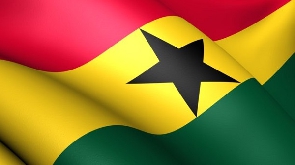In a time when our beloved Ghana finds itself entangled in an economic crisis and rising youth unemployment, there seems to be an unsavory rise of tribalism in politics.
The campaign trail for the NPP has become tribalistic, the President’s utterances during the visit to the victims of the Akosombo Dam spillage and its arising issues have also become too tribalistic, and our discourse on social media is scary.
As a Ghanaian looking from afar, I feel it is crucial for us to begin to accept our differences now more than ever. The essence of our nation lies not in homogeneity but in the rich tapestry of its ethnic, cultural, and political diversity that makes her (Ghana) unique. This diversity should be our strength, not a source of division.
Our nation is a mosaic of cultures, languages, and traditions, each contributing immensely to the vibrant nature of Ghanaian identity. This very diversity has enriched our history, art, and values and made us a shining example for our peers in the sub-region.
Our diversity is what has made us resilient and adaptive and we must recognize that unity does not mean uniformity and it will never mean that. In the diaspora, every Ghanaian you meet is your brother or sister and I say without any doubt that most of them are like or more than family who look out for you or support you in times of distress.
Our National House of Chiefs should begin to find ways to introduce cross-cultural activities into our public discourse and encourage chiefs who are perceived to be adversaries to find ways to diffuse tensions through dialogue, understanding, and compromise, for it is in the recognition of our historical
legacies that we find the common ground to move forward. Our politics, too, should be a forum for constructive debate and not a battlefield of insults and tribalism.
We must hold our leaders accountable, but we should do so based on their policies, actions, and character, not their ethnic, religious, or cultural
backgrounds. Going into the 2024 elections, we must rise as a people to shame politicians who play the tribal card and call them out for who they are. The media also owes a duty to the Ghanaian public to cancel or blacklist people who engage in this kind of dirty politics to safeguard the peace we enjoy as a
country.
The growth and prosperity of Ghana lie in our ability to harness the collective potential of all our citizens, regardless of their ethnic, cultural, or political affiliations. Our strength as a nation is in our unity, and our unity is only truly achieved when we celebrate our differences and recognize the unique contributions each brings to the table. It's through this acceptance of diversity that we can forge a brighter future for our beloved Ghana.
Long Live Ghana.
Opinions of Monday, 23 October 2023
Columnist: Daniel Adama















